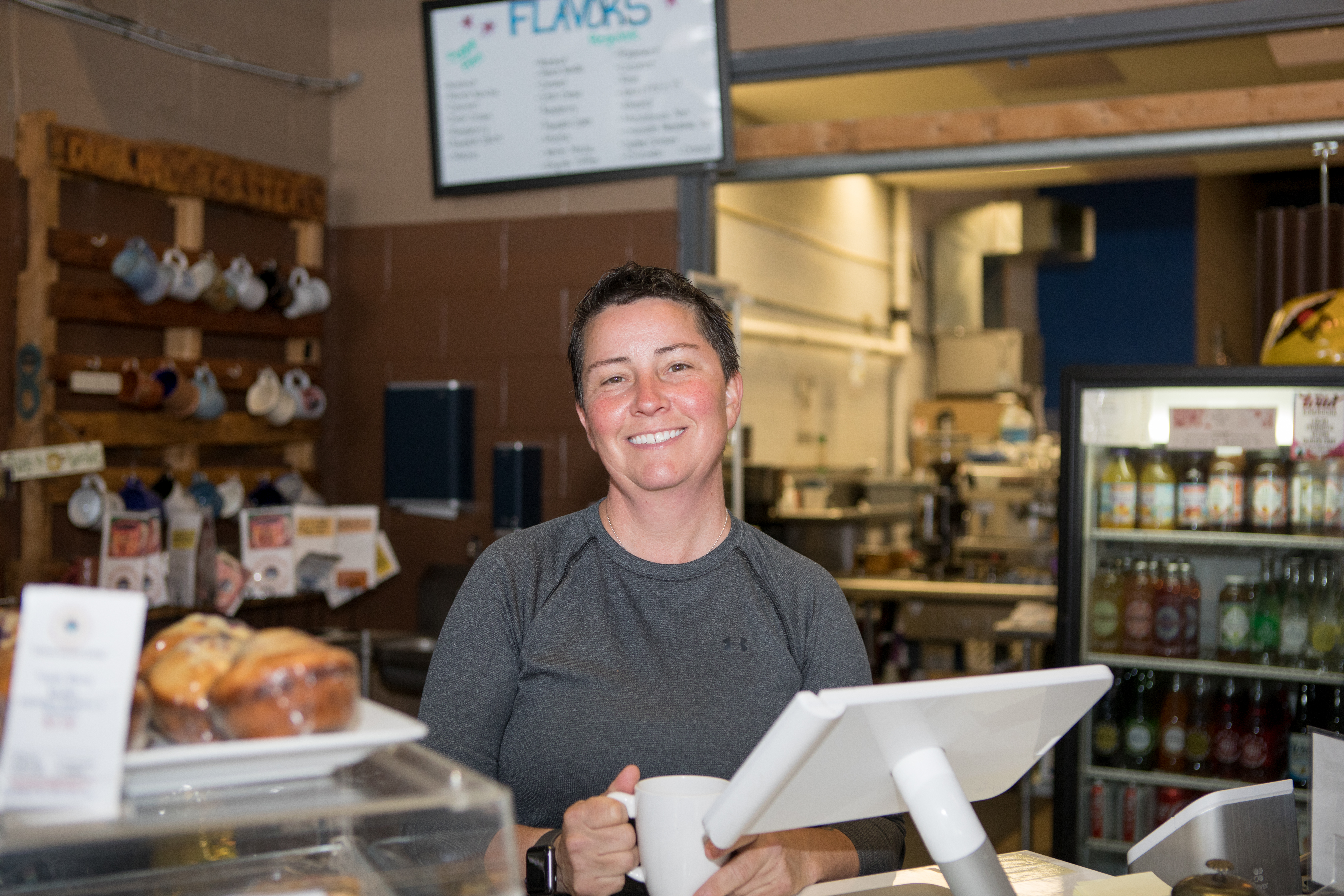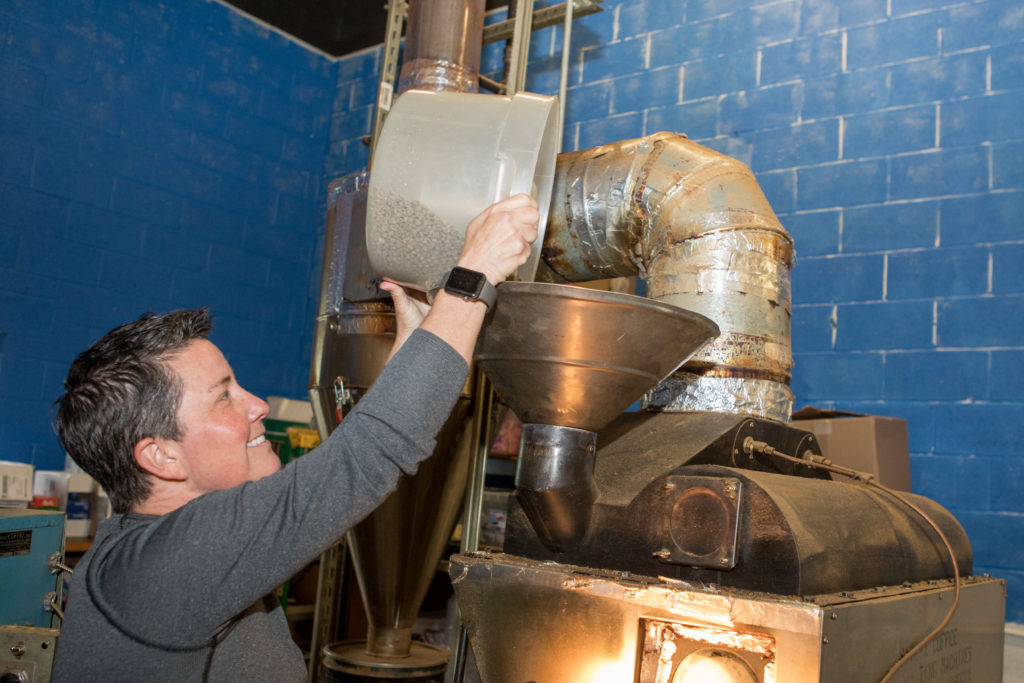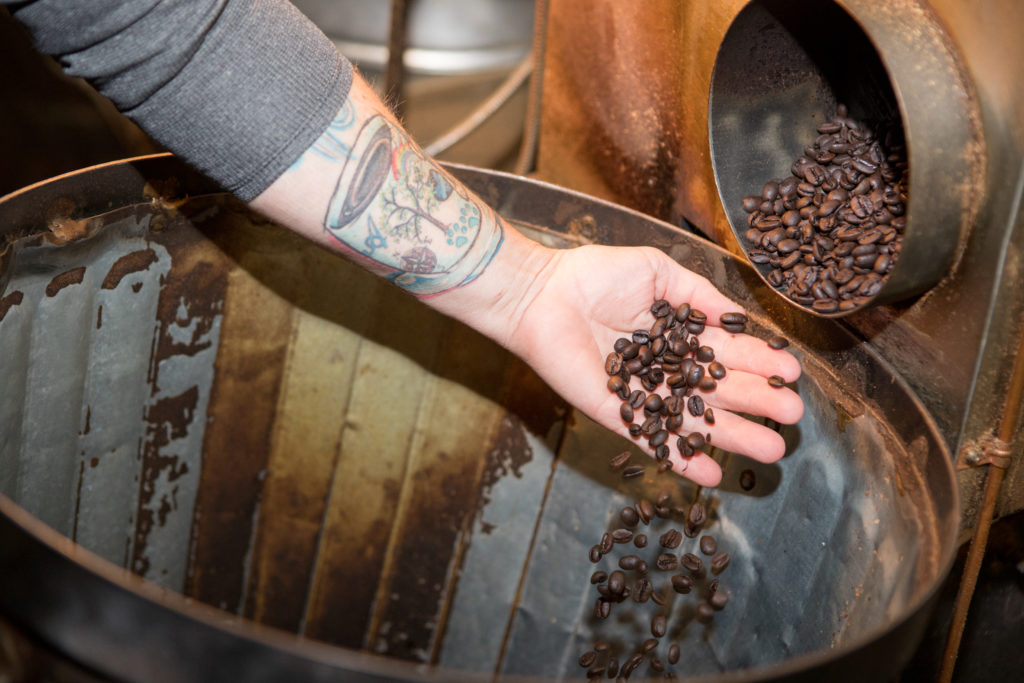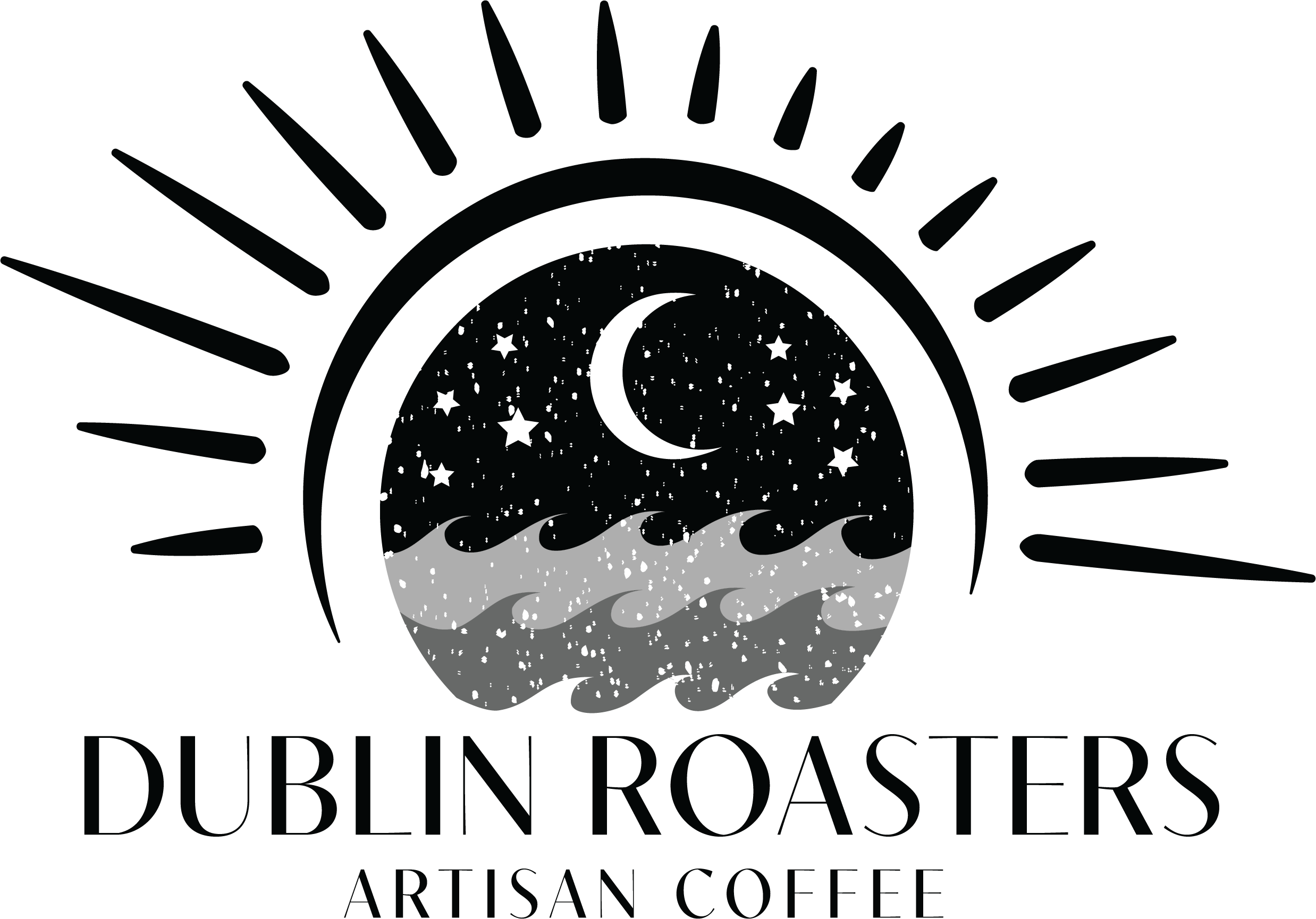
01 Aug From Coffee to Community: Dublin Roasters’ Serina Roy featured by the City of Frederick Dept. of Economic Development
Dublin Roasters’ founder and owner, Serina Roy, was recently featured in the City of Frederick Department of Economic Development’s blog highlighting some of the City’s most successful minority and women business owners. Heading into Dublin’s 20th year providing organic, ethically sourced and fairly-traded coffees from around the world to the denizens of Frederick and beyond, Serina is passionate about connecting the local community more directly to the small farmers whose livelihoods are supported by our daily grind.
This repost comes directly from the Business in Frederick blog where you can read more about the other entrepreneurs featured as part of this project here. Photos are courtesy Mary Kate McKenna of Mary Kate McKenna Photography.
From accountant to volunteer firefighter to police officer, Serina Roy has donned countless hats during her time in Frederick. However, as Dublin Roasters Coffee is swiftly heading toward celebrating its 20th year, we must admit that her role as an entrepreneur has not only stuck the longest, but has also been her most delicious venture yet.
Tell us the story of your business. How did you get started here in Frederick?
I’ve lived in Frederick since 1992, and in my twenties I became a police officer. The entire time I was doing police work, I learned how to coffee roast, and it was just a relaxing thing for me. It was in 2000 that I bought my own roaster, and next January we’re celebrating 20 years as Dublin Roasters. Businesses don’t normally make it that far—I’m kind of shocked! I had no knowledge of how to do any of this; I just give a good product, and I’m honest, so people are willing to try it.
How did you make the leap into running a business full-time?
I took a full year sabbatical from police work—it was a way for me to grow Dublin and see if it could actually sustain itself. And it did! Within that year I resigned from police work altogether, and I opened a little store in New Market. I just had wholesale for roasting there, and I couldn’t even sell cups of coffee yet. From there I got too big for the space, so I moved in here! People would visit us at the farmers markets, and they started to ask ‘do you have a coffee shop?’ So I took the hint, and worked with the City to get this built in. But I didn’t know how to run a coffee shop; I was really winging it. Little by little, every suggestion that people mentioned, I would try to implement if at all possible. So not knowing what I was doing…it worked out.

Serina Roy pours coffee beans into a roaster at Dublin Roasters Coffee. She started off roasting beans as a hobby when she worked as a Frederick Police Officer.
How have you seen Frederick change throughout your years in the business community?
I have seen the city as a whole change a lot as far as restaurants popping up in the last decade. Everything around Frederick is booming, so that’s caused Frederick to kind of step up their game. The amount of women-owned and -operated business have really skyrocketed, so I think we’re stepping up our game. And I think businesses like the way the communication changes when you add a female owner or manager.
What has prepared you for owning a business, if anything, and what do you wish you’d known?
I think the things that have prepared me for business really starts with being a mom and growing up very poor. There were a lot of motivating factors, but, strangely, police work was a huge factor. Being able to talk to people; being able to negotiate things…I was negotiating life and death, so this is easy-peasy. Oddly, I’m actually an extreme introvert. I like hiring staff that really handles the outside stuff while I’m back here thinking about what we can do differently, so it’s really been a win-win situation.
How do you negotiate being an introvert with running an award-winning business?
It’s so funny that you put it that way…it doesn’t feel like that to me. In order to keep doing the things that I’m doing, I have to deal with a little bit of discomfort from public speaking or presenting something that’s dear to me. That part’s hard but because it’s something I’m passionate about, the passion really leads the way. If I keep going out and speaking publicly, people come in and buy the coffee, and I can do more for the charities. It doesn’t feel terrific to be in the limelight but it helps me to keep doing what I love to do. It’s all worth it.
What are the easiest and hardest parts of being an entrepreneur?
The hardest part for me is managing people. I try to hire staff that are self-motivating and just love coffee and working with people. That enables me to take a step back. The sales part of it is one of the hardest parts too, because I’m responsible for 15 people and figuring out how to propel Dublin forward. Those are the hard parts but they’re also the best parts because little tweaks can mean huge, huge payoffs. It’s really neat when you see the instant gratification.
Are any challenges that you’ve faced that you think are specific to your role as a woman in business in Frederick?
I think I have something that I was taught as a police officer: command presence. You can tell who’s in charge when you walk into a room, right? I think here it’s kind of the same way. If you want your staff to follow you, you should do what they do. Not only do I demand to be respected, I also have that command presence and a confidence about it, like I’m not going to let you treat me badly. If you do, I don’t need to do business with you, simple as that. It’s not necessarily a smart business move, but if you set the tone, you’re going to be instantly getting rid of riff-raff at the bottom. You’re just saying nope, this is what I’m going to do… and I can live with that.

Serina Roy holds a handful of freshly roasted coffee beans. In her travels to collect beans from around the world, she hopes to connect more with the farmers.
What are your goals for Dublin?
I want to meet more of the growers and get them more involved. This Sunday I’m going to Ecuador for a week, and I’m going to make a documentary while I’m there looking for this bean called Robin Hood. It’s going to be fun! It’s all about bringing this coffee to Frederick and having everyone in this community be tied to that community. That’s one of the goals, and so is getting a second space. I’m keeping this location, but I want a larger facility so I can house all these beans I’m bringing back from all over the world. I want to have a cupping and roasting lab so people can come in to taste and cup and learn how to be a barista on our machines.
Do you have any advice that you would give to yourself when you were younger or to other women who are looking to start their own business?
Don’t quit your day job. It’s advice of slow, measured growth: don’t take a lot of loans, don’t make your passion a burden. That’s the best way to do it; that will ensure longevity; that will ensure that you are not in debt. The other part I wish I could have told myself when I was younger is to charge more. Feel your value. With coffee roasting, I was just trying to make a little bit more than what I paid for the coffee. Now, I think a little differently. If I charge enough, I can pay my employees more. It’s not going into my pocket, it’s going back in to either employees or the customer experience or the charities. Anybody could justify that.


